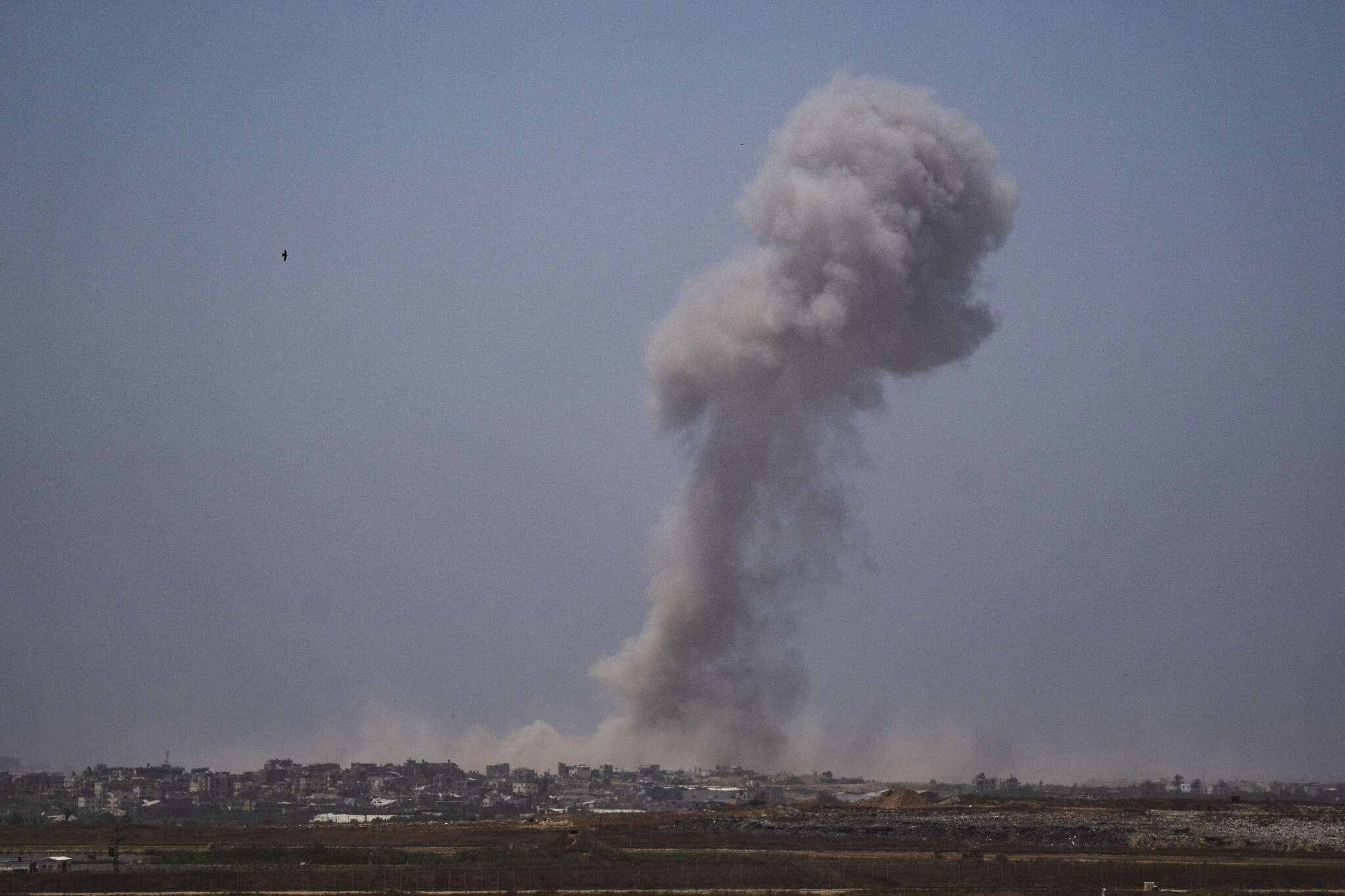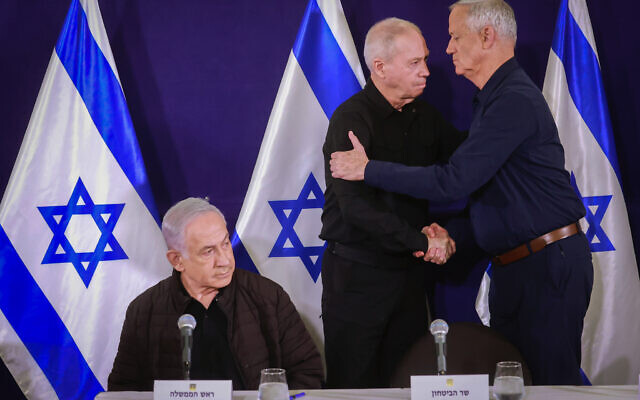



The Biden administration could endorse the formation of a Palestinian or Arab peacekeeping force in postwar Gaza, with a US official serving as its top civilian adviser, according to a report Thursday.
Politico reported, citing four US officials with knowledge on the matter, that the US expects to play a prominent role in rebuilding and rehabilitating the Gaza Strip once Israel’s war against Hamas concludes, but the administration is still working to define what exactly this would look like.
One option being considered is to appoint a US official to serve as a civilian adviser to a Palestinian peacekeeping force. According to the report, the US is also working to persuade Egypt, Morocco and the United Arab Emirates to join the force, should it be formed.
The US adviser would not be located in Gaza itself, the unnamed officials told Politico, as the Biden administration is not keen to be seen as responsible for the day-to-day running of the Palestinian enclave. Instead, the officials suggested that the adviser could be located in Egypt or Jordan.
The possibility of assembling a peacekeeping force was discussed in a classified State Department document obtained by Politico from March.
The document suggested that the peacekeeping force should not be “a US-commanded mission” as it would likely “encounter fierce resistance by the Palestinian people given US support for Israel’s military campaign in Gaza.”
Instead, the document suggested the force should be composed of some 2,000 Palestinian members and an additional 1,000 members from Arab countries, with an “appropriately senior officer” from either Israel, Egypt or a reformed Palestinian Authority at its helm.
The report added that the US currently favors Egypt as the contender to lead the force, and that the force should be branded as a “security mission.”
The administration of post-war Gaza, often referred to as the “day after” issue, has been central in the strategic discourse surrounding the war. Israel, however, has not committed to a clear post-war plan, drawing criticism from its allies and creating internal political rifts.
In particular, Prime Minister Benjamin Netanyahu has been non-committal regarding the issue, leading Defense Minister Yoav Gallant to publicly call on him last week to rule out the possibility of Israeli military or civilian administration of Gaza. Later, war cabinet minister Benny Gantz announced that if a post-war plan was not conceived by June 8, his party would leave the coalition.
IDF Chief of Staff Herzi Halevi also reportedly tore into Netanyahu during security consultations earlier this month for failing to develop and announce a day-after strategy.
Gallant and Gantz, both retired generals, fear a prolonged, costly reoccupation of Gaza, from which Israel withdrew all its soldiers and settlers in 2005. They are also opposed to a withdrawal that would leave Hamas in control or lead to the establishment of a Palestinian state.
Far-right members of Netanyahu’s governing coalition, who hold the key to his remaining in power, have called for permanent occupation, “voluntary emigration” of large numbers of Palestinians to anywhere that will have them, and the rebuilding of Jewish settlements in Gaza.
Most Israelis are opposed, pointing to the immense costs of stationing thousands of troops in the territory that is home to 2.3 million Palestinians. As an occupying power, Israel would likely be held responsible for providing health, education and other services. It’s unclear to what extent international donors would step in to fund reconstruction amid ongoing hostilities.
There’s also no guarantee such an occupation would eliminate Hamas.
Netanyahu has said Israel will retain security control over Gaza but delegate civilian administration to local Palestinians unaffiliated with Hamas or the Western-backed Palestinian Authority, which governs parts of the West Bank. He has suggested that Arab and other countries assist with governance and rebuilding, but none have shown interest as long as Israel maintains military control of Gaza.
Another suggested plan would see a reformed Palestinian Authority govern Gaza with the assistance of Arab and Muslim nations, including Saudi Arabia, which would normalize relations with Israel in return for a US defense pact and help in building a civilian nuclear program. US and Saudi support hinges on Israel committing to a credible path to eventual Palestinian statehood, a highly unlikely prospect given the Israeli government’s current makeup.
Hamas has proposed a phased agreement in which it would release all of the Israeli hostages it holds in return for hundreds of Palestinian prisoners — including senior terrorists convicted of murdering Israelis — as well as the withdrawal of Israeli forces from Gaza, a lengthy ceasefire and reconstruction. This would leave Hamas in control of Gaza, potentially allowing it to rebuild its military capabilities.
The war broke out on October 7, when Hamas terrorists launched a surprise cross-border attack, killing some 1,200 people, mostly civilians, and kidnapping 252.
The Hamas-run Gaza health ministry says more than 35,000 people in the Strip have been killed or are presumed dead so far in the ensuing Israeli offensive, though only some 24,000 fatalities have been identified at hospitals. The tolls, which cannot be verified, include some 15,000 terror operatives Israel says it has killed in battle. Israel also says it killed some 1,000 terrorists inside Israel on October 7.
Agencies contributed to this report.



